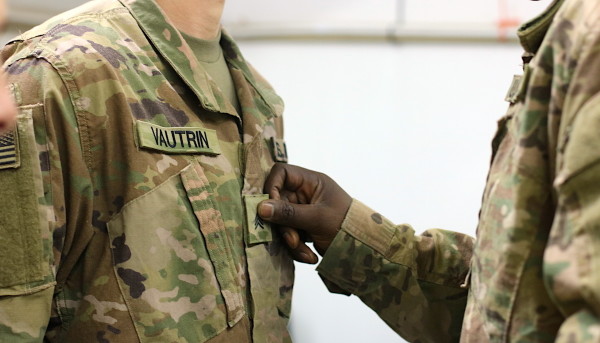

To combat unconscious biases in promotions, soldiers will no longer be required to include pictures of themselves or indicate their race or gender in promotion packets starting in August, Army officials said.
The move applies to commissioned officers, warrant officers, and noncommissioned officers, Army spokesman Lt. Col. Junel Jeffrey told Task & Purpose.
Prior to the change, both officers and enlisted soldiers had to submit a Department of Army photo of themselves and check a box on promotion packets to indicate their racial origin and gender.
These changes come as the Defense Department as a whole is looking at how to end racial disparities in promotions and the military’s justice system.
Army leaders announced in a June 24 memo that the pictures would no longer be required for officers’ promotion boards starting on Aug. 1 in order to “help ensure that selection boards are as fair and impartial as possible.”
Starting in October 2018, the Army conducted a study into whether those photos affect promotions, said Col. Carl Wojtaszek, of the U.S. Army Office of Economic and Manpower Analysis
In the experiment, officials ran two identical promotion boards, one which looked at Department of the Army photos and one which did not, Wojtaszek told reporters on Thursday at a Pentagon news conference.
The results showed that the photos provided “more noise than signal about the officer’s talents,” he said.
“Our study finds that when you remove the DA photo, the voters’ scores became more precise,” Wojtaszek said. “Voters took less time to cast the votes on each individual file. And the outcomes for minorities and women improved.”
The changes for promotions come as the Army is also investigating racial disparities in the service’s justice system.
A 2019 Government Accountability Office report found that Black and Latino service members are more likely to be investigated and court-martialed than their white counterparts.
“This report raises difficult questions — questions that demand answers,” Lt. Gen. Charles Pede, the Army judge advocate general, told lawmakers on June 16. “Sitting here today, we do not have those answers. So our task is to ask the right questions and find the answers.”
During Thursday’s news conference, a reporter asked if the Army is training Black soldiers on how to respond when pulled over by civilian police officers. The reporter recalled an incident when a police officer drew his pistol on her father, a retired service member, and called him “boy.”
Sergeant Major of the Army Michael Grinston said the matter is not a training issue because soldiers should not be pulled over due to their race in the first place.
“That situation should not happen,” Grinston said. “We have not implanted training on that but that is something that we as a nation need to get better as opposed to training our soldiers on how to act in a situation that we shouldn’t be put in at all.”